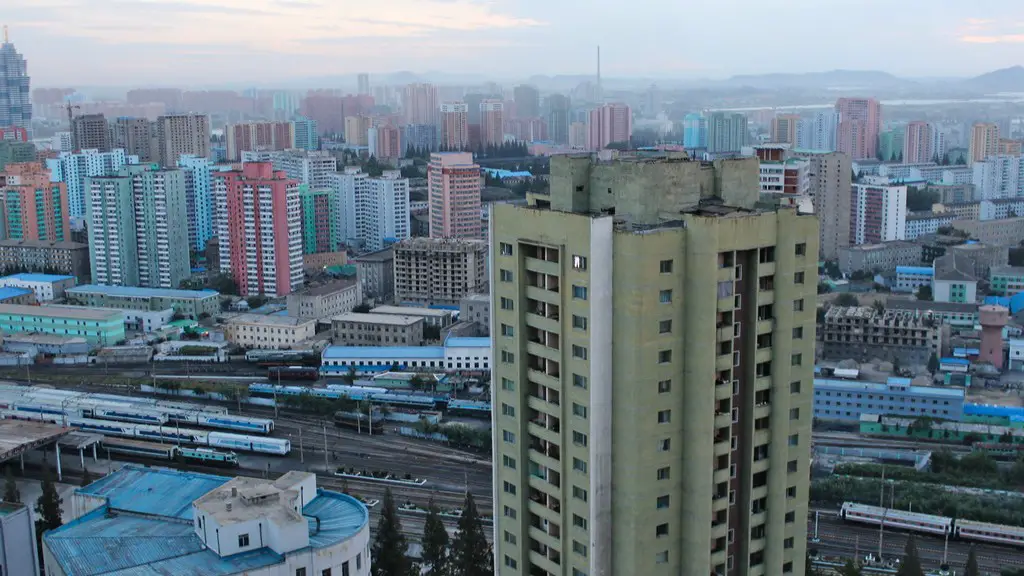North Korea and Nuclear Weaponry
Most of us have heard of North Korea and its leader Kim Jong Un, but what we know often doesn’t go much further than his erratic behavior and threats to the global stage. What is the reality behind the headlines and what would happen if we decided to take dramatic action and launch nuclear weapons against North Korea?
The country has declared itself to be a nuclear power and according to estimates by the International Institute for Strategic Studies they have amassed up to 60 nuclear weapons since 2006. While North Korea isn’t able to reach the US yet, they do have the capability to launch strikes at South Korea and other close neighbours using its long-range intercontinental ballistic missiles.
The general consensus from military sources and experts is that attacking North Korea would be an extreme measure and unlikely to be successful. The US military has authority to act in the event of an imminent attack from North Korea, but even in this situation a full-scale nuclear assault is rarely discussed. According to retired Air Force Lt. Gen. Dave Deptula “Nuclear war is a nonstarter” as it would have repercussions that are impossible to calculate.
It’s clear that the US and its allies must take action – but a military strike is an option of last resort for the US and its allies in the region. The United Nations is a much better platform for seeking diplomatic solutions to the North Korea crisis. Through invoking Article 41 of the UN Charter, which allows the UN Security Council to impose economic, trade or diplomatic sanctions against North Korea, the US and its partners can use a variety of tools to de-escalate tensions with North Korea and bring them to the negotiating table.
The UN is an invaluable asset when it comes to responding to countries who pose a nuclear threat. By engaging in multilateral agreements to cap and eventually reduce their forces, the international community can ensure that person and property aren’t exposed to any nuclear threats. The Iran nuclear agreement is a great example that has proven to be invaluable in ensuring peace and stability in the region.
Psychological Deterrence
In addition to multilateral agreements, the US and its allies must also use psychological deterrence as a strategy to prevent North Korea from escalating tensions. Military exercises such as Foal Eagle and Ulchi Freedom Guardian, which simulate a response to a North Korean attack, signal to North Korea that the US and its allies are ready to take action if necessary.
Furthermore, North Korea’s erratic behavior and their obsession with grandiose displays of military strength is also a deterrent to their broader ambitions. Media reports show that military parades and public spectacles that take place in Pyongyang will usually send a signal to the US and other countries in the region that North Korea isn’t planning an attack.
A Diplomatic Solution
Ultimately, a diplomatic solution is the best way to ensure that North Korea doesn’t launch a nuclear attack. The US and its allies must continue to engage with North Korea in order to reduce tensions and encourage dialogue.
The current US envoy to Pyongyang, Stephen Biegun, is extremely knowledgeable in this area and he is taking an important stance in trying to mediate between the two sides. As a former Under Secretary of State, Biegun has proven to be a capable negotiator and is currently engaged in diplomatic efforts to avert a nuclear stand-off with North Korea.
Biegun has also had success in engaging with China and Russia, both of which have a vested interest in keeping North Korea in check, as they both benefit from maintaining the status quo with their neighbor. This is why it is important for the US and its allies to continue to persuade the two countries to stick to the side of diplomacy in order to bring North Korea to heel.
Sanctions and Financial Pressure
Financial pressure is also an effective tool for preventing a nuclear conflict with North Korea. The UN Security Council, as well as the US, has imposed a number of economic sanctions against North Korea in order to stunt the growth of their weapons program and have recently voted to increase these sanctions.
The US has also imposed its own set of secondary sanctions on North Korean officials, businesses and entities that are engaged in their illicit activities in order to deny them access to international markets. This forces North Korea to come to the bargaining table where they are more willing to negotiate on denuclearization in exchange for a lifting of sanctions.
Clashing Interests
Although the US and its allies are working hard to prevent a nuclear conflict, it is clear that the interests of the two sides are in stark contrast. The US is trying to thwart North Korea’s nuclear ambitions while they are trying to make it a self-sustaining nuclear power.
This means that negotiations will continue to be difficult and it is likely that North Korea will not agree to any form of denuclearization. The frustrating truth is that there is no easy solution in sight for this problem and the US and its allies must remain vigilant in their efforts to prevent a nuclear disaster from occurring.
North Korea’s Changing Tactics
What has become increasingly clear is that North Korea is changing their tactics when it comes to nuclear warfare. Gone is the talk of wanting to obliterate their enemies, what we are seeing now is a more measured approach which is designed to gain attention and recognition from the international community.
This new narrative appears to be making headway in some areas, as the US and North Korea recently held talks in Sweden and several countries in Asia, including China and South Korea, have been engaging in dialogue with the North.
It is premature to assume that North Korea is changing its approach out of goodwill, however, as all of these talks appear to hinge on North Korea getting some kind of concession from the US. Nevertheless, it is clear that North Korea is no longer simply talking about nuclear destruction and is instead taking a more cautious approach.
A Misunderstanding of North Korea
It’s also important to note that North Korea’s nuclear ambitions have been distorted and misunderstood in the western media and by many politicians. They are often seen as a irrational and dangerous threat, when in fact their call for nuclear power is rooted in their history of self-preservation and their need for security.
It’s easy to talk about taking dramatic action against North Korea and launching airstrikes, but it’s important to consider the consequences of such a move. It is clear that any such move would put hundreds of thousands of innocent lives at risk, not to mention the substantial damage to the environment and economy.
Therefore, it is essential that the US and its allies continue to use diplomatic measures and work together in order to find a peaceful solution to the North Korean crisis.
Modifying Agreements
The US must also take a step back and recognize that North Korea’s concerns are valid and should be taken seriously. Agreements, such as the Nuclear Non-Proliferation Treaty, must be modified to ensure that all countries, including North Korea, are given the same rights and benefits under the treaty.
This would go a long way in showing North Korea that the US is willing to negotiate in good faith and would provide an essential bridge to move beyond an impasse. It is also essential, however, that the US maintains its commitment to non-proliferation and continues to uphold all of its existing commitments.
An Unstable Region
Despite the constant media attention and diplomatic efforts, we must remain aware of the fact that North Korea still poses a nuclear threat. The region is still volatile and if tensions escalate then the situation could quickly spiral out of control.
The US and its allies must stay alert and maintain a unified stance in order to keep the North Korean situation from becoming a global crisis. The US must also continue to engage with North Korea and take the necessary steps to ensure that any diplomatic solutions are mutually beneficial for both sides.
International Support Needed
It is essential that countries around the world come together to help resolve the North Korean crisis. International support from countries such as China, Russia and Japan is needed to ensure that diplomatic solutions are reached and that the US and its allies don’t take rash action.
The UN must also take a more proactive role in the negotiations so that all countries in the region can have their voices heard and their concerns addressed. Only through a collaborative approach, with the UN at the helm, will a successful diplomatic outcome be achieved.


